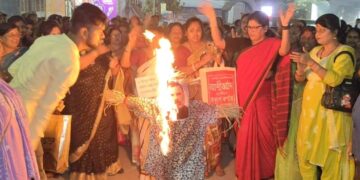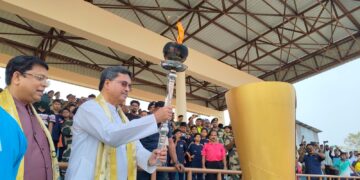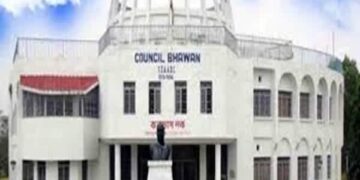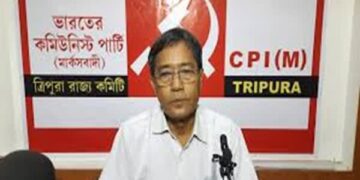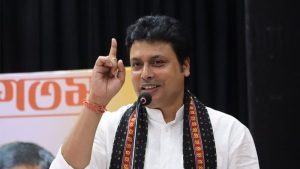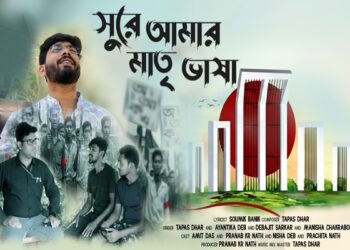Agartala: May 23: Former Tripura Chief Minister and current Member of Parliament, Biplab Kumar Deb, has launched a scathing attack on the Communist Party of India (Marxist) [CPI-M] over its controversial statement following the recent Maoist encounter in Chhattisgarh. In the operation, security forces killed 27 Maoists, including top leader Nambala Kesav Rao.
The CPI-M had condemned the killings, alleging that both the central and Chhattisgarh state governments had rejected any possibility of dialogue and instead chosen a path of violence. The party claimed that the encounter was a reflection of the government’s unwillingness to explore peaceful solutions.
Deb responded sharply, labeling the CPI-M’s stance as “anti-national.” He accused the Left party of siding with extremists who have long terrorized civilians and obstructed development in several regions of the country. According to Deb, supporting Maoists under the guise of political dissent amounts to endorsing violence and destabilization.
The BJP leader went further to question the legitimacy of communist ideologies in India, arguing that such political philosophies should no longer have a place in a modern, democratic society. He asserted that the CPI-M has no moral or political right to exist if it chooses to sympathize with violent insurgents over national security forces.
Deb’s remarks underscore the growing political divide over how to handle the Maoist insurgency, which remains active in several states despite years of counterinsurgency efforts. While the government maintains that security operations are necessary to restore law and order, Left-leaning parties often argue that root causes like poverty, land rights, and lack of governance need to be addressed through dialogue rather than force.
The incident and ensuing political debate have once again brought national attention to the broader challenge of balancing security, civil rights, and political ideology in India’s fight against left-wing extremism.
Biplab Deb Blasts CPI-M for Comments on Chhattisgarh Maoist Clash
0
0
SHARES
0
VIEWS
Please login to join discussion



Stay Connected test
- Trending
- Comments
- Latest
Tripura State Games a new platform for nurturing young athletes: CM
February 22, 2026
Santirbazar doctors to play in MLA Cup
February 21, 2026


